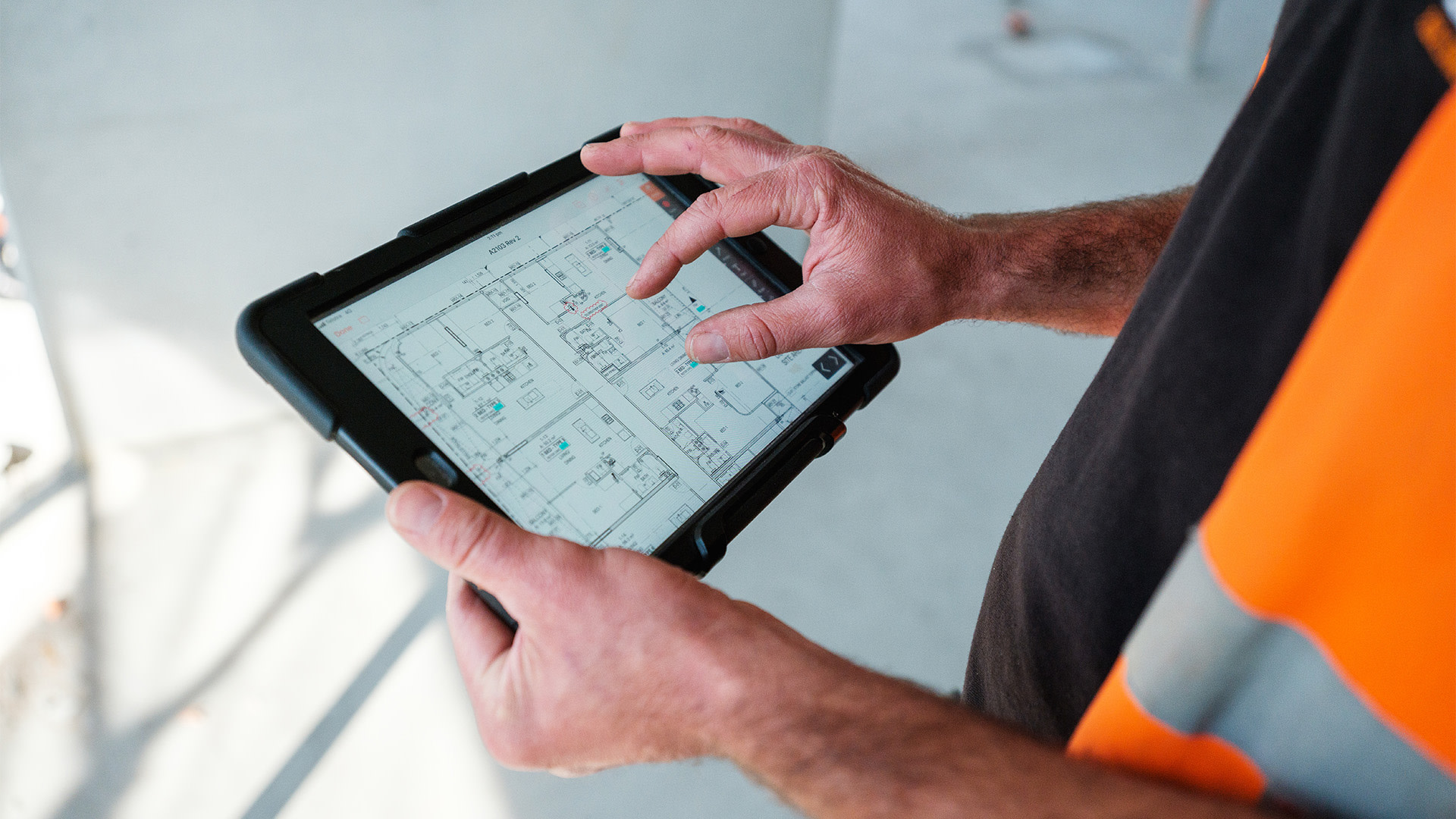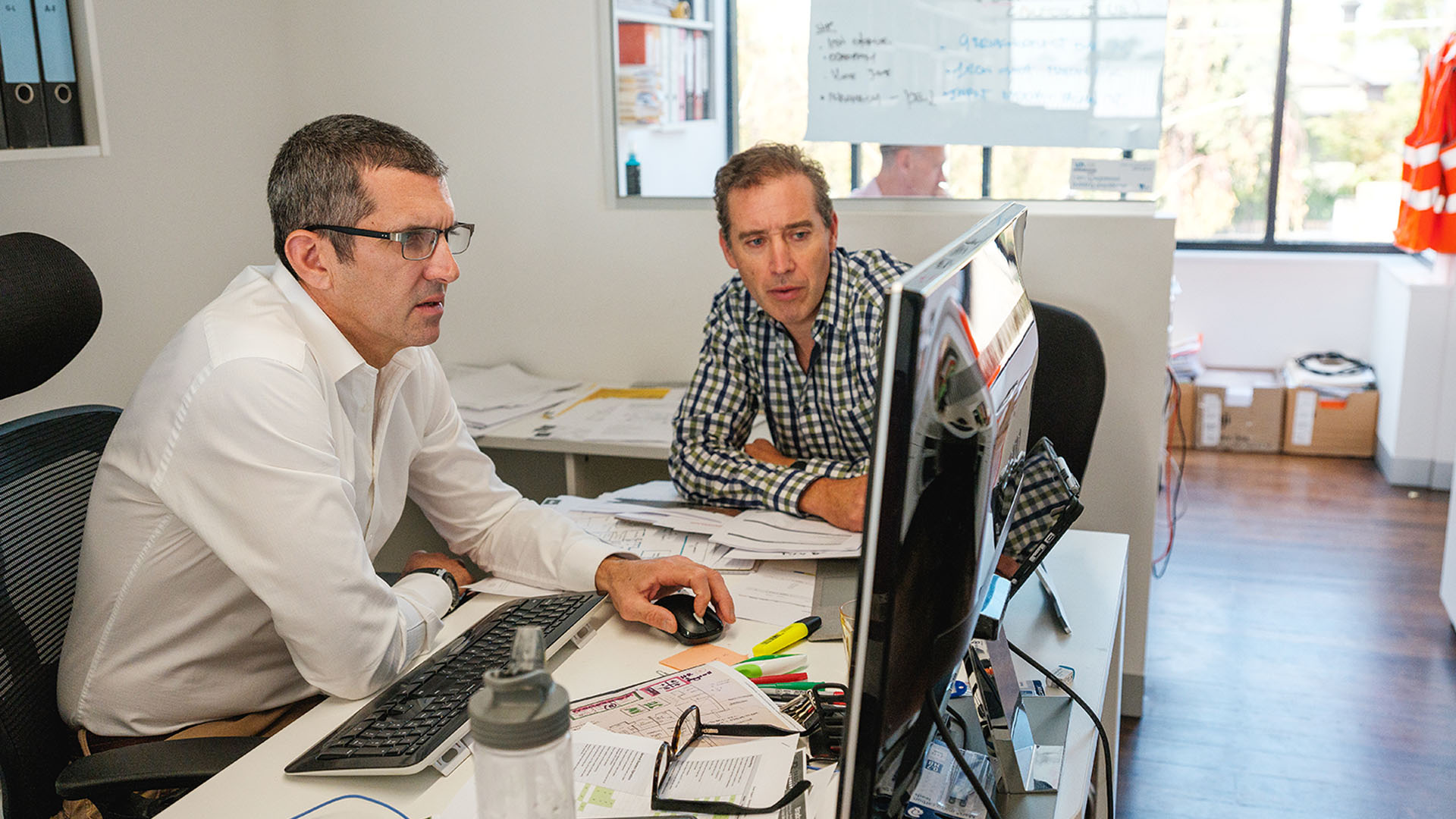
Article
Transforming Perth's Construction and Property Landscape
Technology Adoption and Challenges Explored by Industry Leaders

Perth’s population growth and an increase in urban development are demanding more cutting-edge construction technology. The shift towards digitalisation is not only streamlining processes but also enhancing the sustainability and efficiency of the built environment.
From smart building technologies to innovative project management systems, these advancements are shaping the future of the city's real estate and construction, creating a more connected and sustainable urban environment for its residents and investors. What challenges and opportunities do Perth face now?
An executive roundtable hosted by Procore connected the local industry’s key construction and property leaders to discuss implementing strategies to effectively address industry-wide concerns.
Griffin Group, Project Manager, Lucille Klopper
Griffin Group, Project Manager, Anthony Rizzacasa
InDev, Design and Project Manager, Detlev Heintz
Pacific Energy, Sr Project Manager, David Simpson
SKS Group, Construction Manager, Ian McGivern
Welink Group & Construction, Director, Sam Zhao
Welink Group & Construction, CA / Systems Manager, Tara Scott
Yaran Property Group, General Manager, Marco Bonaiuto
Zorzi, Project Manager, Adam Yeomans
Chapter 1
Key Themes: What emerged from the discussion?
Technology Adoption: It was evident that different generations within organisations have varying levels of comfort with technology, which can affect the adoption process.
Resistance to Change: Resistance to technology adoption was highlighted as a common challenge, often rooted in the fear of change, a preference for familiar processes, or a lack of understanding about the technology's potential benefits.
Process Improvement: Participants discussed the need for streamlining operations and eliminating unnecessary tasks. Checklists and centralised platforms were proposed as solutions to enhance efficiency.
Project Management Software: Attendees discussed the increasing adoption of project management software, and how it’s improving project efficiency, communication, and cost control. Some shared success stories and best practices.
BIM and Digital Twins: Building Information Modelling (BIM) and digital twins were mentioned as exciting technological developments. Digital twins offer the ability to create virtual representations of physical assets, allowing for detailed simulations, maintenance, and predicting the building's future state.
Regulations and Compliance: Attendees discussed the regulatory landscape for construction projects in Perth, including the recent changes, and how technology is aiding compliance and risk management.
Bridging Generational Gaps: The discussion highlighted the importance of bridging generational gaps in technology adoption. Younger employees may be more comfortable with technology, while senior management may need to understand the value and investment in digital tools.
Data Security and Privacy: Thought leaders considered the importance of data security in construction technology adoption, especially with the increasing use of cloud-based platforms.
Cultural Shift: Changing the mindset from an investment perspective was considered essential. It was emphasised that securing buy-in from top executives and leadership played a pivotal role in driving this transformative cultural shift, ensuring that technology adoption becomes a shared vision and a core element of the organisation's ethos.
Collaboration: Effective communication and collaboration between on-site teams and office staff were recognised as crucial to successful technology implementation. There was a strong emphasis on aligning the efforts of everyone involved in a project.
Future Trends: Thought leaders also predicted future trends in construction platform management technology, such as the use of AI, IoT, and automation, and how they will shape the industry.

Chapter 2
Technology Adoption and Digital Transformation
According to industry thought leaders at the table, the construction and property landscape in Perth is experiencing a dynamic transformation driven by various factors, from sustainability and digitalisation to changes in workforce and market conditions.
In response to the demand for sustainable construction practices, the market is witnessing a rise in green certifications and eco-friendly materials. The adoption of Project Management Software and BIM is transforming project management and design, but poses challenges.
In the era of technological advancements, tools like Procore are enhancing project efficiency and communication. Prefabrication and modular construction methods in Perth offer potential cost savings and faster project delivery, though the shortage of skilled labour remains a concern.
Perth is on the verge of smart city development, with technology integration in urban projects relying on construction platform management. Startups in construction face opportunities and challenges in market acceptance.
Innovative materials and technologies are revolutionising traditional construction practices, impacting design, cost, and durability. Data security is a paramount concern in the age of cloud-based platforms, requiring risk mitigation strategies.
Technology is fostering collaboration among stakeholders in construction projects, with Procore playing a significant role in the transition to a centralised technology landscape. However, a notable gap in data strategy exists, with a growing awareness of the need for it. Calls for standardised benchmarks and guidance from industry bodies and government entities have emerged.
Looking ahead, AI, IoT, and automation will shape future trends in construction platform management technology, ensuring Perth's leadership in technological advancement in the construction and property sector.

Chapter 3
Embracing Technology for a Resilient Future
The thought leadership event underscored the significance of community building and industry connections. Jeremie Henry from Procore Technologies stressed the need for industry leaders to unite in addressing challenges within the evolving construction landscape, citing key insights from the 'How We Build Now 2023' Report.
The report highlighted the growing reliance on technology in construction, particularly for cost management, quality improvement, and enhanced visibility. Amid rising costs, supply chain issues, and labour shortages, technology adoption emerges as a critical strategy.
Henry noted a dip in industry confidence, with concerns in Perth focusing on contract and payment issues, underscoring the potential of payment technologies to address these challenges. Despite skepticism about tech investment, a clear narrative on technology's effectiveness is needed.
This year's industry focus in Perth shifts towards survival and resilience, with cultural resistance to tech adoption remaining a significant hurdle. While 47% nationally anticipate increased spending on construction technologies, the key question is whether this will translate into action.
Notably, 51% of stakeholders foresee construction management platforms driving change in 2023, with a similar percentage actively planning to implement a data strategy. The overarching theme indicates a pragmatic shift towards solvency over quality, reflecting evolving industry priorities.
Chapter 4
Challenges Faced by Industry Leaders
The roundtable discussion served as a platform for attendees to share experiences and challenges, highlighting significant adaptations prompted by the global health pandemic.
Challenges echoed those in other capital cities, with a struggle to find and retain skilled tradespeople, compounded by the retirement of experienced professionals and the preference of younger generations for tech-based roles.
Workforce and skill development took centre stage as thought leaders discussed the impact of technology adoption on training and development in the face of a skilled labour shortage. Project delays and rising costs due to approval processes and supply chain disruptions were prominent concerns, with an emphasis on the role of technology in mitigating these issues and streamlining project management.
In Perth, market conditions are influenced by global events and economic factors, making it crucial for investors to explore property values and investment opportunities. Understanding the regulatory landscape, especially in light of recent changes, is vital, with technology playing a key role in ensuring compliance and risk management.

Chapter 5
Embracing Innovation - Pacing The Way Forward
These challenges provided valuable insights into the intricate landscape of construction and property development in Perth, showcasing the industry's resilience and dedication to technological innovation and strategic adaptability.
The discussion concluded with a strong commitment from industry leaders to wholeheartedly embrace technology as the linchpin for a more resilient and innovative future in the construction and property development sector in Perth.
The shared challenges and insights underscored the urgent need for a comprehensive industry-wide transformation centred on cutting-edge construction management technology. This transformation aims to enhance project efficiency, cost management, and the development of robust data strategies, positioning the industry to navigate the complex challenges in the Perth construction market.
The event was a testament to the industry leaders' willingness to collaborate and adapt in the face of adversity, highlighting the pivotal role of technology in shaping the future of the construction and property development sector in Perth.
